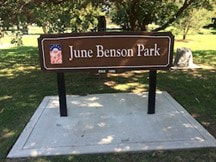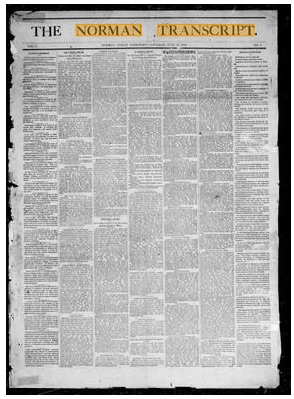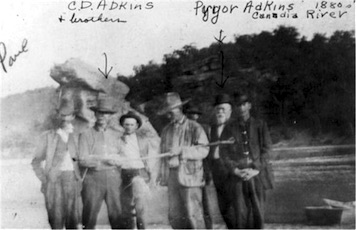In the Economic Depression of the 1930s, many Oklahomans, including Norman citizens, had to come to grips with the economic reality that there was little money and fewer jobs. In 1932, some Americans saw hope in the election of Franklin D. Roosevelt as President of the United States. In his first 100 days, he proposed to the United States Congress a series of programs that were meant to stimulate the economy and put people back to work. Those programs were the beginning of a storm of government funding that reached every city, every town, and every country side across America. For a small town the size of Norman, with a population of 9,603 citizens in 1930, community leaders did not wait for the government program to save the day; they organized and started programs they hoped would bring economic relief to the citizens, while they waited for the government’s economic response.
Along with growing economic uncertainty in Norman in the early 1930s, there was weak economic leadership in the city. After initial settlement in April of 1889, downtown businesses did organize to promote commerce, but it was not until 1933 that there was a concentrated effort to strengthen Norman’s economic future. It was in that year, that the Norman Chamber of Commerce was formally organized. The organization of the chamber was no doubt due to the economic downturn that many Norman businesses experienced. New Chamber of Commerce leadership believed that there needed to be local economic stimulus programs that encour- aged people to buy goods, the hope being that more money would circulate and jobs would be created. The chamber devised several economic programs or events that preceded the influx of Roosevelt’s “New Deal” programs in the mid to late 1930s.
Along with growing economic uncertainty in Norman in the early 1930s, there was weak economic leadership in the city. After initial settlement in April of 1889, downtown businesses did organize to promote commerce, but it was not until 1933 that there was a concentrated effort to strengthen Norman’s economic future. It was in that year, that the Norman Chamber of Commerce was formally organized. The organization of the chamber was no doubt due to the economic downturn that many Norman businesses experienced. New Chamber of Commerce leadership believed that there needed to be local economic stimulus programs that encour- aged people to buy goods, the hope being that more money would circulate and jobs would be created. The chamber devised several economic programs or events that preceded the influx of Roosevelt’s “New Deal” programs in the mid to late 1930s.



 RSS Feed
RSS Feed